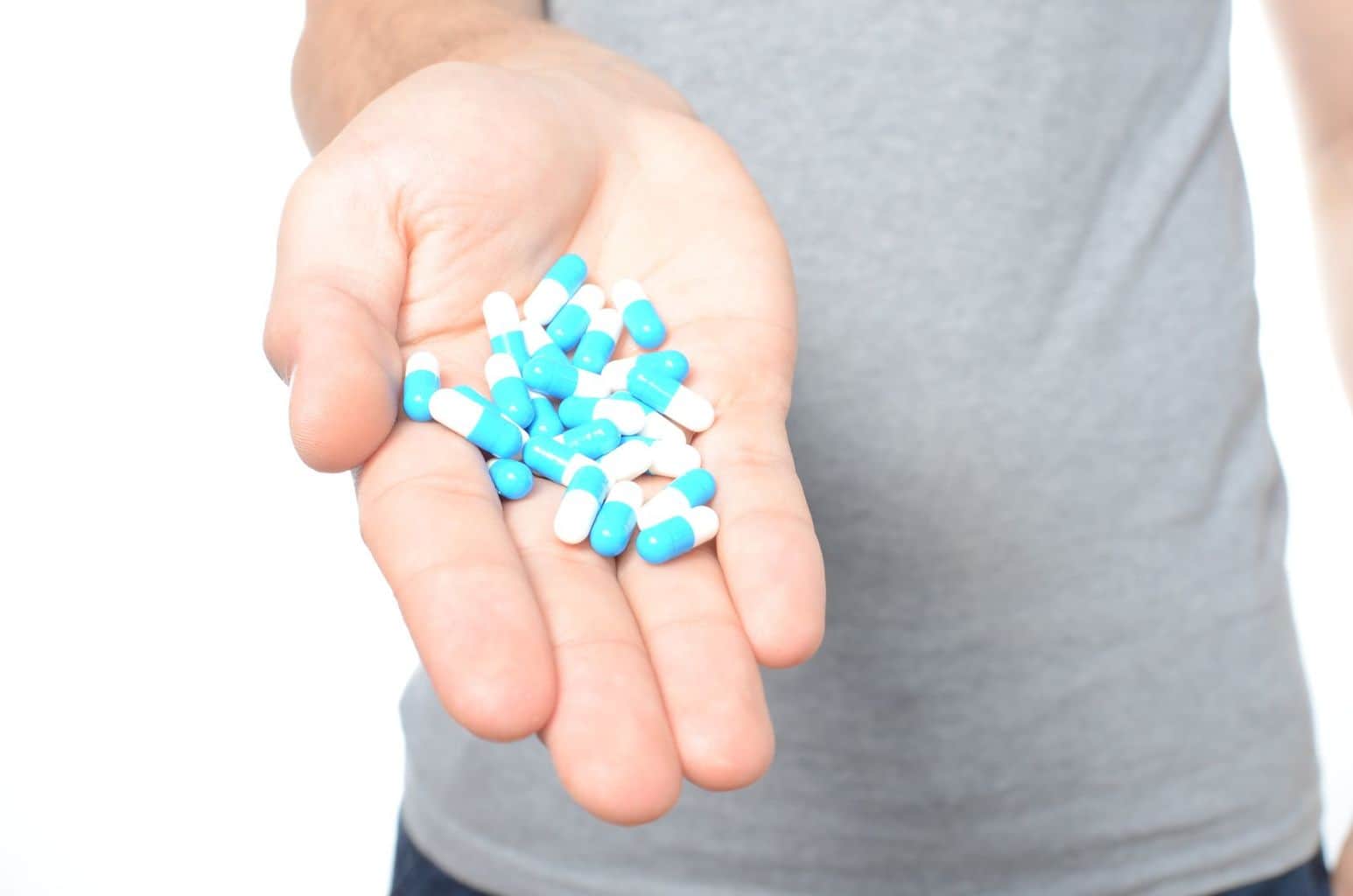
One of my favorite vitamins is vitamin K. Remind me sometime to tell you how vitamin K and vitamin E work together synergistically, but for today’s newsletter, I want to specifically talk about the role of vitamin K in increasing testosterone production.
I have noticed this powerful effect of vitamin K myself.
Remember there are two forms of vitamin K, vitamin K one and vitamin K two.
In this newsletter, I’m talking specifically about vitamin K2, which is the vitamin K form that I recommend you generally take.
The body can turn vitamin K into vitamin K two, but supplementing with vitamin K2 is generally the better idea, except in certain cities where you may be consuming aspirin, or warfarin, in which case it may also pay to supplement directly with vitamin K.
Vitamin K is in green veggies — you can get vitamin K from your diet by consuming things like spinach, broccoli, and kale. A pound of kale may contain 1 milligram of vitamin K, which is actually quite a bit.
Bacteria in our gut are thought to transform the vitamin K found in greens, into vitamin K2.
Isn’t the body wonderful?
You can also get vitamin K from liver, which contains the largest amount of vitamin K in the body.
But you don’t get much from liver, so you’re better off with the veggies.
Some people get vitamin K from seed oils, but I recommend you never consume seed oils.
So in this study, they found that vitamin K supplementation raises testosterone level significantly in rats.

As the study authors conclude about vitamin K2.
ITs supplementation could reverse the downregulation of testosterone production in elders
Vitamin K has so many wonderful advantages.
In another newsletter, I’ll discuss vitamin K and how it can fix a fatty liver disease, which afflicts many if not most of the people reading this newsletter.
Whenever I do a newsletter about vitamin K, I always get a number of people emailing me about the dangers of vitamin K, supposedly.
The major danger they claim is that it causes blood clots or counteracts the effects of warfarin
I’m not a big fan of warfarin to prevent strokes.
But I’m not a medical doctor either, and personally, what I would do has nothing to do with what anybody else should or shouldn’t do.
However, my job is to open up people’s eyes about things that are out there in the literature and are known.
A lot of doctors still think that vitamin K is dangerous if you have a stroke risk, or if you’re taking warfarin.
But studies show that vitamin K actually helps counteract the most dangerous side effect of warfarin.
Warfarin causes bruising and bleeding, but it also causes calcification of the arteries.

And vitamin K’s function is to place the calcium in the right places in your body.
So when you take vitamin K with warfarin, you actually get a better effect because the warfarin still fights blood clots, and the vitamin K prevents calcification of the arteries.

http://www.ncbi.nlm.nih.gov/pubmed/21914161
Helps counteract warfarin artery calcification side effects
http://www.ncbi.nlm.nih.gov/pubmed/23344475
Vitamin K2 is not a well-known nutrient but it plays a very important role in blood clotting, hence is very important for the human body. There are two forms of this essential Vitamin, the Vitamin K1 and the Vitamin K2. Among the Vitamin K1 is found in leafy greens while the Vitamin K2 is essentially found in fermented foods and in animal foods. The core function of Vitamin K2 is to modify ingested proteins to be able to bind calcium. There have been studies which do show that Vitamin K2 in addition with Vitamin D3 can be a powerful resource in increase the levels of testosterone in the body.Usually found in red meat, egg yolks, cheese, fermented foods, butter and liver, Vitamin K2 has also been found to play an important role in lowering the risk of cardiovascular diseases by aiding in the removal of calcium deposits from the artery. Vitamin K2 also known as Menaquinone are very rich in certain other foods like fish eggs, chicken breast, chicken liver, salami and ground beef. The fermented food that is rich in Vitamin ki2 includes Sauerkraut and Natto, the soy dish that has its origin from Japan. Vitamin D is also important for the body but it is a rarely known fact that adequate Vitamin k2 levels are also important along with it. Both of them work in a tandem relationship and helps in improving the metabolic processes of the body. In addition to this, Vitamin K2 aids in the healing and maintenance of the bone health. It has also been found that Vitamin K2 decreases the levels of estrogens and increases the levels of DHEA at the same time, thus increasing the libido of an individual.
2. Does vitamin K increase testosterone?
A recent study, performed on rats, has shown that vitamin K can significantly raise testosterone levels.There are two types of vitamin K, vitamin K-1 and vitamin K-2. For our purposes today, we’ll be focusing on the benefits of vitamin K-2.Vitamin K-2 can be found in many sources, but primarily in green vegetables, liver, and seed oils. Green vegetables include things like broccoli, spinach, and kale. I heartily recommend avoiding seed oils. Though the liver contains the largest amount of vitamin K in the body, you’re going to get more bang for your buck sticking with the vegetables.A pound of kale may contain up to a milligram of vitamin K. That might sound miniscule, but it’s quite a bit. Bacteria in the gut are thought to transform vitamin K into vitamin K-2.Now, back to the study.After giving rats regulated doses of vitamin K, the study’s authors concluded that “its supplementation could the reverse the downregulation of testosterone production in elders.” In other words, it could reverse falling testosterone levels in older men!
